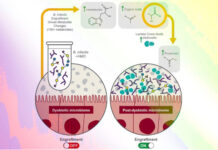The European Ombudsman ruled on December 2024 on the position taken by the European Commission on the use of the term ‘probiotics’ in labeling and advertising of food and food supplements. (1)
The situation remains critical, also due to the different approaches adopted by Member States regarding the possible application of the Nutrition and Health Claims Regulation (EC) 1924/06. Pending the EU Court of Justice.
1) Probiotics, concept
Probiotics are historically defined as ‘live microorganisms that, when administered in adequate amounts, confer a health benefit on the host’ (FAO, WHO, 2001). substantiated by the provision of four conditions, which microorganisms must meet in order to be designated as ‘probiotics’:
– characterization (genus, species and subspecies, according to the international nomenclature, followed by the catalogue number of the individual strain in a recognised ‘cell collection’ or its commercial name);
– safety for the intended use. For this purpose, in the European Union, is also possible to refer to the QPS (Qualified Presumptions of Safety) developed by EFSA (European Food Safety Authority); (2)
– scientific evidence. At least one positive clinical study in humans, to be conducted in accordance with generally accepted scientific standards or the provisions and recommendations of the competent authorities, if applicable;
– vitality. The food or food supplement or medicinal product with probiotics must maintain these microorganisms alive, until the end of the shelf-life, at a dose effective for the purposes. (3)
2) Markets
The progressive growth of the international probiotics market is attributed to the growing attention towards the gut microbiota, by the medical-scientific community and consumers, and to the globalization of online sales.
The sales of dietary supplements, dairy foods and beverages characterized by the presence of probiotics have exceeded:
– globally, US$ 50 billion in 2023, with further growth in 2024 (IPA data, International Probiotics Organisation);
– in the EU (third market, after China and the United States) €10 billion, in 2023. With significant growth (+5,6%), in Italy, in the last year. (4)
3) Legislative obstacles in the European Union
Italy has for many years, been the leading European country for scientific publications on probiotics, second only to the United States, thanks to a long tradition in lactic ferment research and investments by some pioneering companies alongside universities such as the Catholic University of Piacenza and Cremona.
The controversial application of the Nutrition and Health Claims Regulation (EC) 1924/06 has however generated a series of legal uncertainties which have seriously hampered research and thus investment in this promising production sector in the EU, as we have seen. (3) Uncertainties, as we will see, still unresolved.
3.1) Application of the Nutrition and Health Claims Regulation
The European Commission, in its guidelines on the Nutrition and Health Claims Regulation (2007), indicated the wording ‘contains probiotics’ as an example of a ‘health claim’ therefore subject to the application of the relevant rules. In unjustified contrast with the evaluation of EFSA (2016). (5)
The European Commission guidelines of the European Commission – although devoid of legal value in EU law – have influenced the authorities of some Member States, hindered the free movement of goods and investments. Where:
– some Member States, such as Italy, have clarified the conditions for the legitimate use of the wording ‘contains probiotics’ on the labels of foods and food supplements; (6)
– other Member States have admitted the distribution of products bearing the simple (and demonstrated) factual declaration ‘contains probiotics’, others have instead requested the application of the NHCR.
3.2) Levels of scientific evidence
Industrial operators which – beyond the simple factual indication ‘contains probiotics’ – intend to promote the (general or specific) health benefits associated with their consumption must in any case submit a request for authorisation to use the relevant ‘health claims’.
The NHCR regulation has precisely distinguished the two categories of ‘functional claims’ and ‘disease risk reduction claims’, in Articles 13 and 14. The European Commission, in interpreting this regulation, has however required an identical level of scientific evidence for both categories.
3.3) Consequences
The claim of identical levels of proof for ‘functional claims’ and ‘disease risk reduction claims’ implies that:
– in vitro studies on the properties of probiotics and their interactions with gut cells, clinical studies on sensitive patients (i.e. irritable bowel syndrome), observational studies are not sufficient to support a claim such as ‘probiotics L. rhamnosus, B. lactis and B. longum contribute to maintaining the balance of the intestinal microbiome’ (7)
– such claims must instead be demonstrated with expensive double-blind placebo-controlled clinical trials on healthy individuals. The same level of scientific evidence required for a claim relating to the ability of a substance to prevent a disease risk factor (ie ‘Probiotics… help reduce levels of inflammation in the intestinal barrier’). What proportion?
Clinical studies on healthy individuals, moreover, are particularly complex when it comes to demonstrating that a single dietary factor can bring about a significant variation in the homeostasis (i.e. balance of the gut microbiome). And that is why, faced with such obstacles that could compromise the results of years of research, the same investments in research are lacking.
4) European Ombudsman, the procedure
On November 21, 2023 the European probiotics industry has turned to the European Ombudsman to challenge the European Commission’s interpretation that the mere display of the wording ‘contains probiotics’ – without any reference to health benefits, in the commercial information about the food – would constitutes a ‘health claim’ (see previous paragraph 3.1).
4.1) Defence briefs and decision
On December 20, 2024, better late than never, the European Ombudsman has finally rulled. To note the substantive correctness of the European Commission’s interpretation, which it justified with a reference to the definition of ‘probiotic’ offered by FAO-WHO (see paragraph 1 above). This notion moreover:
– refers to the generic benefit of a microorganism to the ‘health’ of a host organism (intestinal cells), with the aim of identifying probiotic microorganisms, through precise distinction with respect to those that are even only potentially pathogenic;
– therefore does not suggest only to the benefits of probiotics for human health. Otherwise opining, the FAO-WHO notion alone should be considered sufficient, by the European Commission, to validate applications for health claims on probiotics;
– is contained in one of the thousands of FAO and WHO documents that qualify food products and the substances they contain, including in the Codex Alimentarius. Therefore, it does not belong to the domain of knowledge of the general population.
4.2) A Solomonic judgement
‘The Ombudsman does not believe that the Commission’s interpretation of the term ‘probiotics’ creates legal uncertainty. Legal uncertainty means that the applicable rules are unclear and, because of this, their addressees cannot ascertain which conduct is prohibited, required, or allowed. In this case, on the contrary, the Commission’s position contributed to clarifying the legal framework.
It is not within the Ombudsman’s mandate to determine whether some Member States allow a use of the term ‘probiotics’, which is not in line with the Claims Regulation. However, even if that were the case, this would not mean that the Commission is wrong, but rather that some Member States do not comply with EU law, which would be for the Commission to address in its capacity as guardian of the EU Treaties’ . (8)
5) Provisional conclusions
The European Ombudsman took 13 months to declare that the European Commission ‘did not commit a manifest error’ in interpreting the Nutrition and Health Regulation. And on this premise (which in turn has no legal value, like the Commission’s interpretation and guidelines) it shifted the responsibility for the legal uncertainty that afflicts the probiotics sector in the European Union onto the Member States.
European Court of Auditors – in its report ‘Consumers can get lost in the maze of labels’ (2024) – has instead shown greater independence from the Brussels executive. Noting, among other things, a series of omissions by the European Commission, in the application of the NHCR, which include the failure to examine 2.078 health claims relating to another category of substances, ‘botanicals’. (9)
The Court of Justice of the European Union – the only official interpreter of EU law, together with the legislator – has in turn clarified, precisely in the case of ‘botanicals’, that health claims must be based on ‘generally accepted scientific evidence’, and not necessarily on the levels of scientific evidence required by the Commission. (10) Only CJEU will be able to put an end to the serious obstacles affecting the probiotics sector. (11)
Dario Dongo
Footnotes
(1) European Ombudsman. Decision on how the European Commission deals with the labeling of foodstuff that contain probiotics as ‘health claims’ (case 2273/2023/MIK). 20.12.24 https://tinyurl.com/4masy7vx
(2) Dario Dongo, Giulia Torre. Microalgae, novel food, and qualified presumption of safety of microorganisms. FT (Food Times). May 4, 2022
(3) Dario Dongo. Probiotics, the chaos of labels in the European single market. FT (Food Times). December 25, 203
(4) See paragraph 5 (Rich-in), entry ‘lactic ferments’, in the previous article of Marta Strinati. Food consumption in Italy in the XVI edition of the Immagino Observatory. FT (Food Times). 21.12.24
(5) EFSA Guidance on the scientific requirements for health claims related to the immune system, the gastrointestinal tract and defense against pathogenic microorganisms EFSA Journal 2016;14(1):4369 https://doi.org/10.2903/j.efsa.2016.4369
(6) Dario Dongo. Probiotics and prebiotics, green light from the Ministry. FT (Food Times). 15.5.18
(7) See the studies cited in notes 10,11 of the previous article by Dario Dongo, Carlotta Suardi. Prebiotics and probiotics, microbiome and immune system. FT (Food Times). April 28, 2020
(8) See the decision cited in note 1, points 29 and 30.
(9) See paragraph 4.4 (Nutrition and Health Claims) in the previous article by Dario Dongo. Special – Food labels in the EU, the Court of Auditors report. FT (Food Times). November 27, 2024
(10) Dario Dongo. Health claims on botanicals, the Court of Justice provides clarity. FT (Food Times). October 13, 2020
(11) Ombudsman’s Conclusion on Probiotics: A Missed Opportunity to Clarify Legal Uncertainty and Meet Consumer Demand. IPA (International Probiotics Association) Europe. Press release. 10.1.25 https://tinyurl.com/psh6st9a
Dario Dongo, lawyer and journalist, PhD in international food law, founder of WIISE (FARE - GIFT - Food Times) and Égalité.








